An Interview With Sun Chang
Have you ever reflected on the values that guide your career as a musician? Pianist, harpsichordist, and multi-instrumentalist Sun Chang has done just that, thoughtfully crafting a musical journey rooted in meaningful friendships and inspiring projects. Sun is an accomplished musician, having performed with Haymarket Opera, ProMusica Chamber Orchestra, Friction Quartet, Vadim Gluzman, Trevor Pinnock, Ars Musica Chicago, and more. She is working on a solo album of keyboard suites by Élisabeth Jacquet de La Guerre, recorded on piano. Sun holds degrees from Northwestern University and the Royal Academy of Music. In addition to her vibrant performing career, Sun is on faculty at North Park University in Chicago. As a member of our duo Ensemble Vitlotte, I perform alongside Sun regularly. However, through this interview I gained deeper insights on her musical journey, her perspective on building a sustainable career, and her dreams for the future.
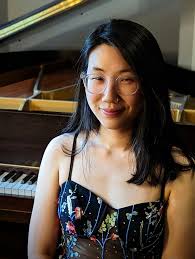
Kiyoe: How would you describe yourself?
Sun: I would describe myself as a musician with different interests, the operative word being “musician.” I don’t want to limit myself to these instruments/genres that I play, but a list: piano, harpsichord, viola da gamba, jazz piano, electric bass, and pennywhistle.
Kiyoe: How did music play a part in your childhood? When did you start lessons, and what was that like?
Sun: My mom is a professional organist, and she also taught piano for a long time. And something that she noticed was that every time someone quit, they would come back to her and say that they regretted it. So it was her life’s mission to make sure that never happened to my brother and me. So when I was growing up, the three things I had to do were: brush my teeth, read books, and play piano.
I started playing piano when I was three, in a music school environment in South Korea. It wasn’t like I had one teacher, it was a whole music community, and I was even in a harmonica choir. As an extrovert, I really liked that when I went to music school, I did music with other kids and I got to hang out while doing music.
When I moved to the U.S., I found my piano teacher, Dr. Peter Mack, who is now the president of MTNA! And we got along really, really well, and he was very formative to my experience. When I started getting better, around 10th grade, it became something that is part of me and I thought I might keep doing it.
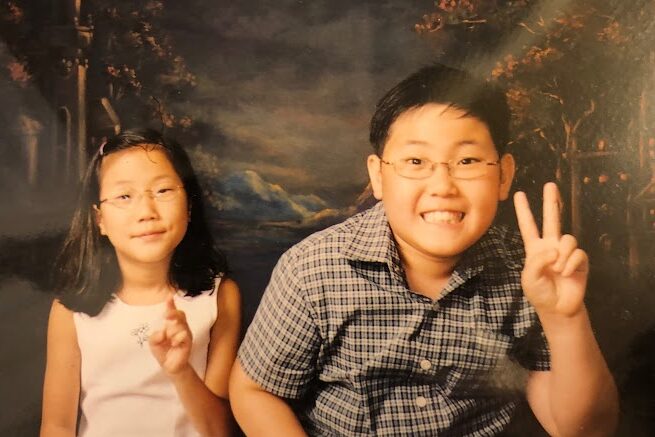
Kiyoe: What inspired you to go into music as a career?
Sun: I didn’t know that I was going to do it as a career when I was growing up. When I got into Northwestern University, I was accepted as a double major, so I was meant to do a music degree and something else. I tried sociology and psychology and all those courses. My advisor asked if I liked any of them, but it turned out I only liked the music classes. Then he said, “Why don’t you just become a music major?”
I wasn’t even thinking critically about how I was going to make money with it because the narrative that I had with my family was, “you need to do what you love doing”. It was the opposite message that most people get. It was almost like, “don’t even think about like having a career that makes money because you should do music if you love it.” My family probably saw this about me more than I saw it in myself – that I actually liked music and had an affinity for it. They were extremely supportive about me doing music. So I didn’t really think about it as a career choice.
Kiyoe: What were the first jobs you worked, either music or non-music?
Sun: I played a lot of piano in church. I was also singing at church. And I also saw my mom and my aunt being professional church musicians. So that was pretty normal to me.
I also did holiday piano gigging at my family’s restaurant. My family owned a diner, and we had bought a piano, which was just living in the restaurant. I was playing Christmas music and I got tips. I was 16 or something, and that was my first professional job. And then I remember being like, “Oh my God, playing piano continuously for three hours is a lot.”
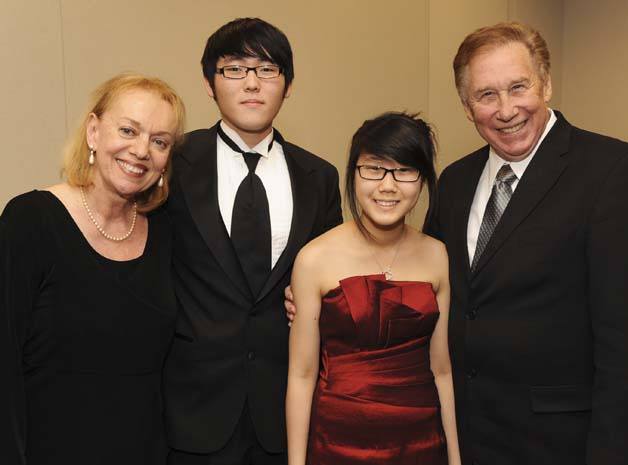
Kiyoe: A career in music can take you many unexpected places. What are some of your favorite places you’ve gone or experiences you’ve had because of music?
Sun: After I graduated, I worked on a cruise ship as a musician in a piano quintet, and that took me to a lot of geographical locations. But it also led me to meeting my spouse, which was really, really nice and serendipitous. I’m really grateful for that because I don’t know how I would have met him otherwise. He was just like a random dude from Pittsburgh.
I just feel like being a musician can like open doors to like so many friendships. For example, when I was in Italy, I met this girl named Kiyoe, and now we’re really good friends. So I feel like that’s a really nice thing because music is something that brings people together instantaneously. I think my favorite part about music is the people that I meet.
Kiyoe: Do you feel like that friendship influences how well you play music together? Or are there musicians that you’re friends with but wouldn’t want to work with?
Sun: That’s a good question. Usually, in my experience, if they’re cool people, and you want to be friends with them, they also happen to be good musicians. I don’t know if I’ve ever seen an example of that not being the case. Maybe sometimes people are assholes, but they’re good at music. But then I wouldn’t want to work with them because that’s not a pleasant experience. I feel like music should always be fun. And if it’s not fun, it’s not worth doing. Like, some musicians are in it to win it; they do music competitively. I don’t want to associate with those people, and it’s not fun to make music with them because we don’t have the same purpose.
I’m hoping my way of doing [music] is that I care so much, and hopefully my life and my work reflects that genuine love for what I do. And I think it’s infectious. I’m hoping that’s enough to convince people that it’s important.
Sun Chang
Kiyoe: As a musician, you’re very multifaceted. What has been the main thing that allowed you to expand?
Sun: I’m really driven by people and curiosity. When I decided to go into early music, I saw that the people in early music tended to be kind of chill. They had this approach to music making that I really enjoyed because I was coming from piano recital repertoire, which is pretty rigid, and if you change notes, it’s like you’ve done a grave sin! I enjoyed that early music encourages free thinking and uses the score as a template for your own expression. And I decided to go into jazz to be able to play with Ben, my spouse, who is a jazz drummer. Once I got into it, I found that I enjoyed the free-ness of it as well.
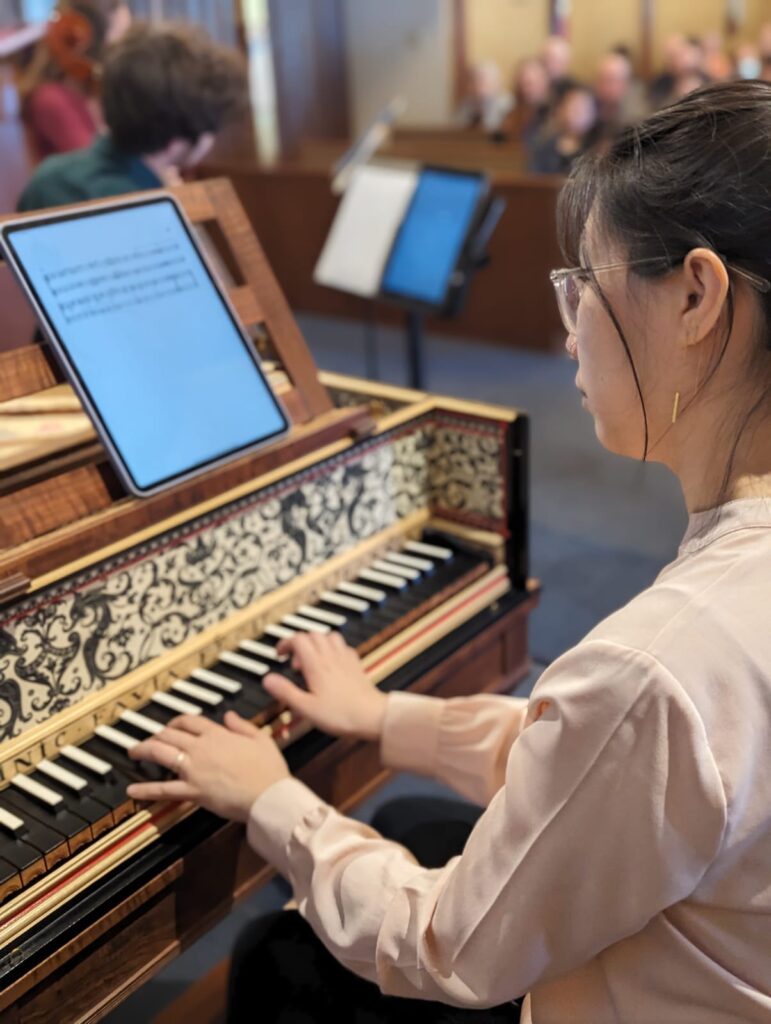
Kiyoe: Was there ever a moment when you wanted to change careers? What might you do instead in an alternate reality?
Sun: I think during COVID, I was depressed. All these opportunities of being with people and playing music were taken away. I was thinking, well, maybe I would like to be a chef because I always liked cooking. Then I actually did work out of vegan café for a bit as a prep cook. It turns out being a chef is really tiring on the body. So I don’t think that was a good pathway for me, but maybe in an alternative reality, I feel like I could be into like business leadership or something. But I don’t know. I don’t feel that passionate about it. How about you? Do you think you could do something else?
Kiyoe: I think about it a lot, actually, because there are some moments where I feel frustrated about my playing. The weight of that frustration, of not being able to produce a final product that I’m totally satisfied with, can be very heavy. So sometimes I wonder if maybe there could be a career that’s not so emotionally draining.
Sun: Yeah. Totally. I feel like what’s hard about a music career is that like you can always do better. And that’s frustrating. But, is it like, if I’m not going to be this specific type of musician, then it’s not worth it, or I would rather do something else? I feel like for me growing up, I had examples of musicians that made a living and liked what they did, but they weren’t like Yo-Yo Ma or anything. For example, my mom is someone who made money doing music, but she wasn’t like the best musician in the world. She does it because she loves it. I feel like that’s something that I looked at growing up.
Kiyoe: What kind of composers or projects are you interested in right now?
Sun: I have a project that I really love, which is recording all the keyboard suites of Jacquet de la Guerre, who is my favorite composer of all time. And I really like playing all the lesser-known works that we play together as a duo, just because I feel like we don’t need to be playing Beethoven anymore. I mean, if you want to do that, go ahead. But personally, I don’t feel the need to visit works that have been visited a million times. It’s so much more exciting for me to find a new violin sonata that no one’s heard of. I’ll always be excited to discover music by women composers.
Kiyoe: What would your advice be for musicians who are just starting out?
Sun: I think my advice would be to figure out what kind of person you are. Meaning, if you’re a person who’s risk-averse, and you feel the happiest if you know exactly how much money you’re going to make, and if you’re the kind of person that wants to be budgeting your retirement, maybe think about that aspect really, really hard before you commit to a career in music.
If you’re a person like me who doesn’t really care about financial stability and has a supportive family, my advice to that person is to do projects that you care about and not projects that you think other people would care about. And I can’t even go as far as to say it’s going to work out in the end, but at least it’s art that’s authentic to you. I think that’s the most important thing when you’re making art, is that it’s something that you truly care about. And if nobody else cares about it, that should be fine.
Kiyoe: Is there a responsibility to show other people why they should care about the art you’re making?
Sun: I’m hoping my way of doing it is that I care so much, and hopefully my life and my work reflects that genuine love for what I do. And I think it’s infectious. I’m hoping that’s enough to convince people that it’s important. For example, I’ve programmed women composers in my recitals for at least seven years now. Many, many people have come up to me and said, “Oh, I’m so glad you shared this with me. Now I’m going to look at other works that this person did.” I feel like if your life reflects the love that you have – if it’s genuine – I feel like that should be enough.
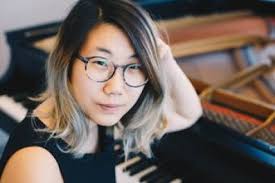
Kiyoe: What are you currently looking forward to? What are your dreams or goals?
Sun: My 20-year goal is that I would love to have a music commune. More specifically, I would love to create a third space where people can enjoy and play music together and build a community around that. The thing that I envision is like “music church”, where people gather to appreciate music, but it’s also a community of people that care about each other. And they can also take part in a community music school where anyone can learn music, regardless of finances. I think it can be like the sort of music school that I did when I was in Korea, which is getting little kids together and making sure that music is a fun group activity instead of, “I have to go”. So that’s my long, long-term goal.
And then at some point I want to play viola da gamba in a baroque orchestra. If I could get good enough to play gamba in that setting, that would be really cool. I also need to release my album and I need to record all the other Jacquet de la Guerre suites. And I’m looking forward to our Emilie Mayer recording, which is very exciting because no one’s heard this work before. And it deserves to be heard.
To hear Sun and Kiyoe perform in a FREE recital on November 20th in downtown Chicago, click here!
You can stay in touch with Sun via sunchangmusic.com to be notified when she releases her album of Jacquet de la Guerre suites. If you’d like to keep up with our violin and keyboard duo, Ensemble Vitelotte, you can sign up for our mailing list!
It was a delight to interview Sun and learn more about her early musical experiences, and how she uses her values to guide her career choices. Did you have any takeaways after reading this interview? Was there anything that you could relate to? Feel free to leave a comment below.
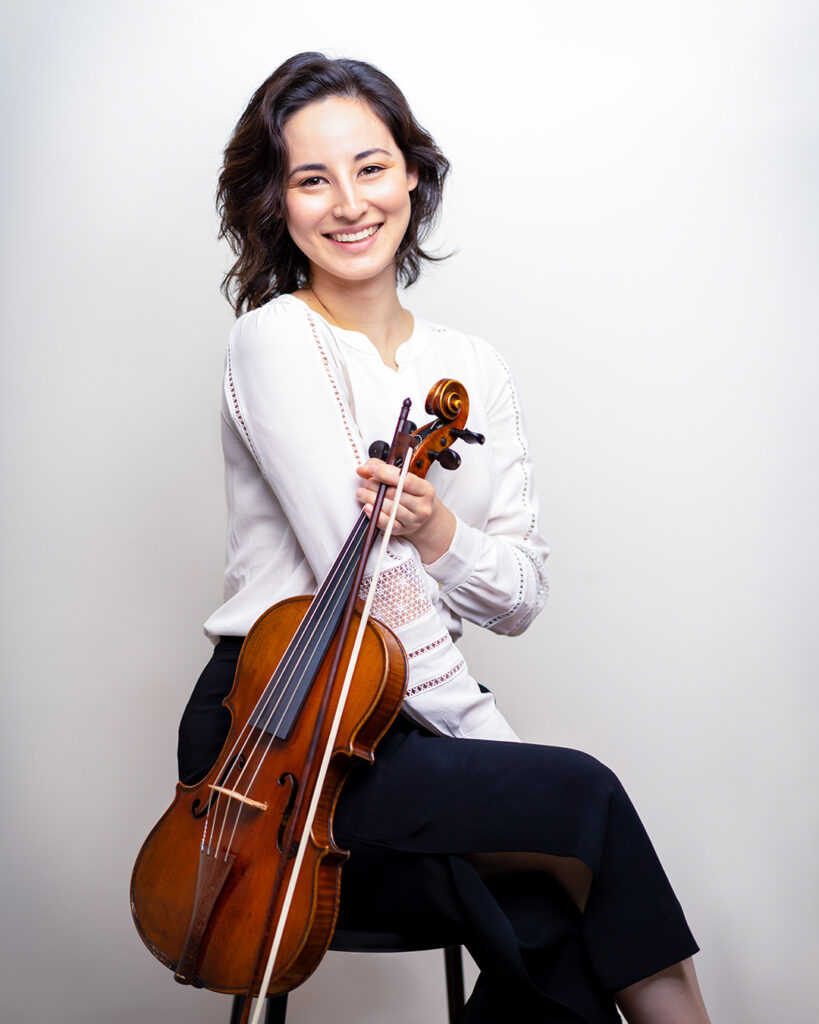
Kiyoe Matsuura is a freelance violinist specializing in baroque performance. She is also co-founder of Ensemble Vitelotte which presents music by historical women composers, and she runs a YouTube channel focusing on violin pedagogy and student repertoire. She has written numerous articles on violin pain prevention, practicing, and pedagogy.

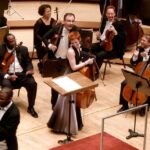
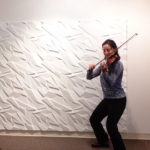

Pingback: How To Build A Nationally-Recognized Non-Profit Music Ensemble - Kiyoe Matsuura Violin